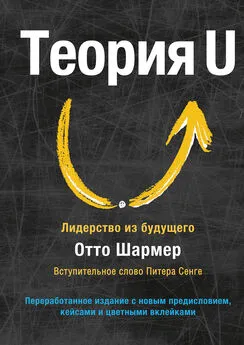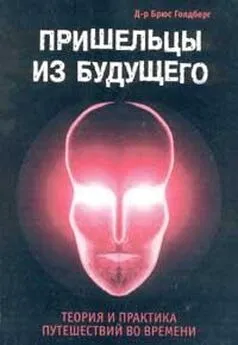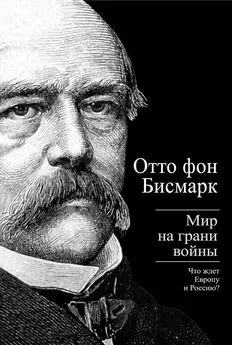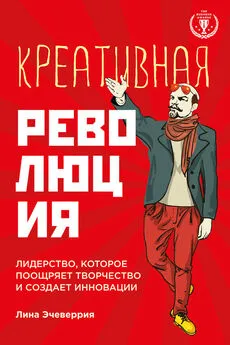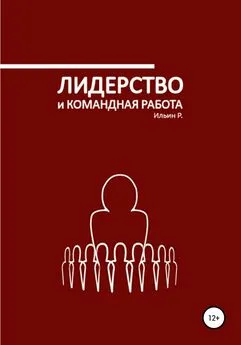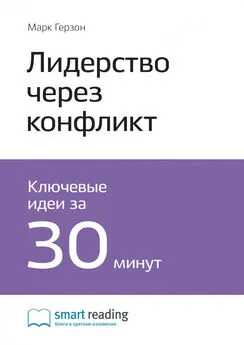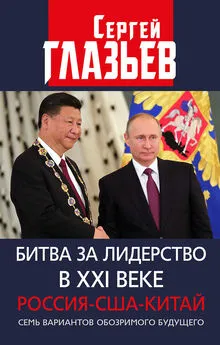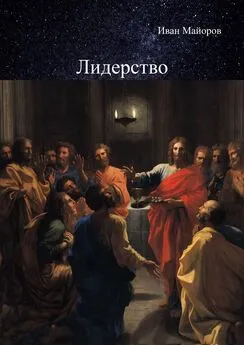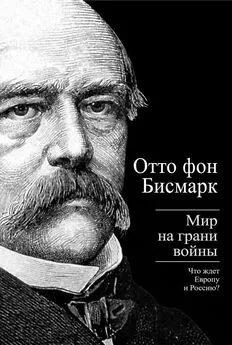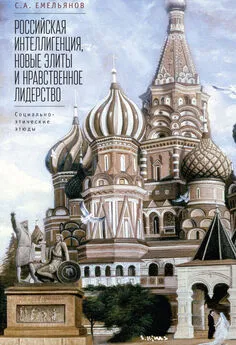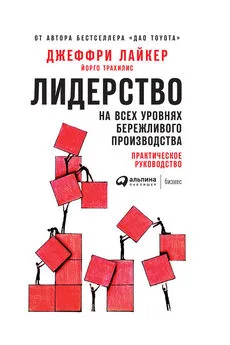Отто Шармер - Теория U. Лидерство из будущего
- Название:Теория U. Лидерство из будущего
- Автор:
- Жанр:
- Издательство:Литагент МИФ без БК
- Год:2019
- Город:Москва
- ISBN:978-5-00117-457-8
- Рейтинг:
- Избранное:Добавить в избранное
-
Отзывы:
-
Ваша оценка:
Отто Шармер - Теория U. Лидерство из будущего краткое содержание
Эта книга написана для лидеров и активных сторонников изменений в корпорациях, правительствах, неправительственных организациях и сообществах.
На русском языке публикуется впервые.
Теория U. Лидерство из будущего - читать онлайн бесплатно ознакомительный отрывок
Интервал:
Закладка:
Pine, B. Joseph, and James Gilmore. 1998. Welcome to the Experience Economy.Boston: Harvard Business School Press.
Pokorny, Julius. 1994. Indogermanisches Etymologisches Wörterbuch. 3rd ed. Tübingen and Basel: Francke Verlag.
Polanyi, Karl, 1966. The Tacit Dimension. New York: Doubleday.
Polanyi, Karl, 2001. The Great Transformation. 2nd ed. Boston: Beacon Press.
Porter, Michael E. 1998. Competitive Strategy: Techniques for Analyzing Industries and Competitors. Tampa: Free Press.
Portes, Alejandro. 1998. “Social Capital: Its Origins and Applications in Modern Sociology.” Annual Review of Sociology 24:1–24.
Prahalad, Coimbatore Krishnarao. 2005. The Fortune at the Bottom of the Pyramid: Eradicating Poverty Through Profits. Upper Saddle River, NJ: Wharton School Publishing.
Prahalad, Coimbatore Krishnarao, and Gary Hamel. 1990. “The Core Competence of the Organization.” Harvard Business Review, May-June, 1990: 79–91.
Prahalad, Coimbatore Krishnarao, and Venkatram Ramaswamy. 2000. Co-opting Customer Competence. Boston: Harvard Business School Press.
Pressfield, Steven. 1995. The Legend of Bagger Vance. New York: William Morrow and Company.
Pressfield, Steven. 2002. The War of Art: Break Through the Blocks and Win Your Inner Creative Battles. New York: Warner Books.
Putnam, Robert. 2000. Bowling Alone: The Collapse & Revival of the American Community. New York: Simon & Schuster.
Putnam, Robert. 1995. “Bowling Alone: America’s Declining Social Capital.” Journal of Democracy 6: 65–78.
Radin, Dean. 1997. The Conscious Universe: The Scientific Truth of Psychic Phenomena. San Francisco: HarperEdge.
Ray, Michael. 2004. The Highest Goal: The Secret That Sustains You in Every Moment. San Francisco: Berrett-Koehler.
Ray, Michael, and Rochelle Myers. 1986. Creativity in Business. New York: Doubleday. Ray, Paul H., and Sherry Ruth Anderson. 2000. The Cultural Creatives: How 50 Million People Are Changing the World. New York: Three Rivers Press.
Reason, Peter, and Hilary Bradbury. 2006 “Preface.” In Handbook of Action Research: Participative Inquiry and Practice, eds. Peter Reason and Hilary Bradbury, xxiii – xxxi. London: Sage.
Reason, Peter, eds. 2001. Handbook of Action Research: Participative Inquiry and Practice. London: Sage.
Risenberg, Marshall B. 2000. Nonviolent Communication: A Language of Compassion. Encinatas, CA: PuddleDancer Press.
Ritzer, George. 1996. Modern Sociological Theory. 4th ed. New York: McGraw Hill.
Rosch, Eleanor. 1999. Interview with Eleanor Rosch conducted by Claus Otto Scharmer, transcript. October 15th, 1999. “Primary Knowing: When Perception Happens From the Whole Field”. https://www.presencing.org/dol/rosch.
Roussel, Philip A., Kamal N. Saad, and Tamara J. Erickson. 1991. Third Generation R&D: Managing the Link to Corporate Strategy. Boston: Harvard Business School Press.
Russell, William F. 1979. Second Wind: The Memoirs of an Opinionated Man. New York: Random House.
Saxenian, Annalee. 1994. Regional Advantage: Culture and Competition in Silicon Valley and Route 128. Cambridge, MA, and London: Harvard University Press.
Scharmer, Claus Otto. 2001. “Self-Transcending Knowledge: Sensing and Organizing Around Emerging Opportunities.” Journal of Knowledge Management, 5, no. 2:137–150.
Scharmer, Claus Otto. 2000a. “Organizing Around Not-Yet-Embodied Knowledge.” In Knowledge Creation: A New Source of Value. Edited by G. V. Krogh, I. Nonaka, and T. Nishiguchi. New York: Macmillan.
Scharmer, Claus Otto. 2000b. “Self-Transcending Knowledge: Organizing Around Emerging Realities.” Organizational Science 33, no. 3: 14–29.
Scharmer, Claus Otto. 2000c. “Presencing: Learning from the Future as It Emerges.” Paper presented at the Conference on Knowledge and Innovation, Helsinki, Finland, May 25–26, 2000. www.ottoscharmer.com.
Scharmer, Claus Otto. 1996. Reflexive Modernisierung des Kapitalismus als Revolution von Innen. Stuttgart: M and P.
Scharmer, Claus Otto. 1995. “Strategische Führung im Kräftedreieck Wachstum-BeschäftigungÖkologie.” Zeitschrift für Betriebswirtschaft 65, Number 6, S. 633–661.
Scharmer, Claus Otto. 1991. Ästhetik als Kategorie strategischer Führung. Stuttgart: Urachhaus. Scharmer, Otto and Katrin Kaufer. 2015. “Awareness-Based Action Research: Catching Social Reality Creation in Flight.” In Action Research, 3rd ed. Hilary Bradbury. Los Angeles: Sage.
Scharmer, Claus Otto. 2013. Leading from The Emerging Future. San Francisco, CA: Berrett-Koehler.
Scharmer, Claus Otto, Katrin Kaeufer, and Ursula Versteegen. 2004. “Breathing Life into a Dying System: Recreating Healthcare from Within.” In: Reflections. The SoL Journal on Knowledge, Learning, and Change, Volume 5, Number 3, 1–12.
Scharmer, Claus Otto, Brian W. Arthur, Jonathan Day, Joseph Jaworski, Michael Jung, Ikujiro Nonaka, and Peter M. Senge. 2002. “Illuminating the Blind Spot: Leadership in the Context of Emerging Worlds.” Dialog on Leadership. www.dialogonleadership.org.
Scharmer, Claus Otto, Ursula Versteegen, and Katrin Kaufer. 2001. “The Pentagon of Praxis.” In: Reflections: The SoL Journal on Knowledge, Learning, and Change, Volume 2, Number 3: 36–45.
Scharmer, Claus Otto, and Joseph Jaworski. 2000. Leadership in the Digital Economy: Sensing and Actualizing Emerging Futures. Cambridge, MA: Society for Organizational Learning.
Scharmer, Claus Otto, and Peter Senge. 1996. “Infrastrukturen für lernende Organisationen.” Zeitschrift für Führung und Organisation 1: 32–36.
Schein, Edgar. 2002. “Clinical Inquiry/Research.” In Handbook of Action Research: Participative Inquiry and Practice, eds. Peter Reason and Hilary Bradbury, 228–237. London: Sage.
Schein, Edgar. 1999. The Corporate Culture Survival Guide. San Francisco: Jossey-Bass.
Schein, Edgar. 1998. Process Consultation Revisited: Building the Helping Relationship. Reading, MA: Addison-Wesley.
Schein, Edgar. 1996. Strategic Pragmatism: The Culture of Singapore’s Economic Development Board. Cambridge, MA, and London: MIT Press.
Schein, Edgar. 1995. “Kurt Lewin’s Change Theory in the Field and in the Classroom: Notes Toward a Model of Managed Learning.” Reflections. www.solonline.org/res/wp/10006.html.
Schein, Edgar. 1989. Organizational Culture and Leadership. San Francisco: Jossey-Bass.
Schein, Edgar. 1988. The Presence of the Past. New York: Times Books.
Schein, Edgar. 1987a. Process Consultation 2nd ed. Vol. I: Its Role in Organization Development. 2nd ed. Reading, MA: Addison-Wesley.
Schein, Edgar. 1987b. Process Consultation. 2nd Edition. Volume 2: Lessons for Managers and Consultants. Englewood Cliffs, NJ: Prentice Hall.
Schein, Edgar. 1987c. “The Clinical Perspective in Field Work.” Newbury Park, CA: Sage Publications.
Schein, Edgar, Peter Delisi, Paul J. Kampas, and Michael Sonduck. 2003. DEC Is Dead, Long Live DEC: The Lasting Legacy of Digital Equipment Corporation. San Francisco: Berrett-Koehler.
Schiller, Friedrich. 1967. On the Aesthetic Education of Man: In a Series of Letters. Edited and translated by Elizabeth M. Wilkinson and L. A. Willoughby. Oxford: Oxford University Press.
Schily, Konrad. 1993. Der staatlich bewirtschaftete Geist. Düsseldorf: Econ Verlag. Schmundt, Wilhelm. 1982. Erkenntnisübungen zur Dreigliederung des Sozialen Organismus: Durch Revolution der Begriffe zur Evolution der Gesellschaft. Achberg, Germany: Achberger Verlag.
Schön, Donald. 1986. Educating the Reflective Practitioner. San Francisco: Jossey-Bass.
Schurmann, Reiner. 1986. Heidegger on Being and Acting: From Principles to Anarchy. Bloomington: Indiana University Press.
Schutz, Alfred. 1967. The Phenomenology of the Social World. Translated by George Walsh and Frederick Lehnert. Evanston, IL: Northwestern University Press.
Seamon, David, and Arthur Zajonc, eds. 1998. Goethe’s Way of Science: A Phenomenology of Nature. Albany: State University of New York Press.
Sen, Amartya. 1999. Development as Freedom. New York: Anchor Books.
Senge, Peter. 1996. Interview with Peter Senge conducted by Claus Otto Scharmer, transcript, May 15th, 1996. “Closing the Feedback Loop Between Matter and Mind”. Interview with Peter Senge. https://www.presencing.org/dol/senge.
Senge, Peter, 1990. The Fifth Discipline: The Art and Practice of the Learning Organization. New York: Doubleday.
Senge, Peter, Claus Otto Scharmer, Joseph Jaworski, and Betty Sue Flowers. 2004. Presence: Human Purpose, and the Field of the Future. Cambridge, MA: Society for Organizational Learning.
Senge, Peter, et al. 1999. The Dance of Change: The Challenges to Sustaining Momentum in Learning Organizations. New York: Doubleday.
Senge, Peter. 1994. The Fifth Discipline Fieldbook: Strategies and Tools for Building a Learning Organization. New York: Doubleday.
Sheldrake, Rupert. 1995. Seven Experiments That Could Change the World: A Do-It-Yourself Guide to Revolutionary Science. New York: Riverhead Books.
Shellenberger, Michael and Nordhaus, Ted, 2004. The Death of Environmentalism: Global Warming Politics in a Post-Environmental World. www.thebreakthrough.org and www.evansmcdonough.com.
Shiva, Vandana. 2000. Stolen Harvest: The Hijacking of the Global Food Supply. Boston: South End Press.
Shiva, Vandana. 1997. Biopiracy: The Plunder of Nature and Knowledge. Boston: South End Press.
Shiva, Vandana. 1993. Monocultures of the Mind: Perspectives on Biodiversity and Biotechnology. London and New York: Zed Books.
Sorokin, Pitirim. 1957. Social and Cultural Dynamics: A Study of Change in Major Systems of Art, Truth, Ethics, Law and Social Relationships. Boston: Porter Sargent.
Soros, George. 2002. On Globalization. New York: Public Affairs.
Spinosa, Charles, Fernando Flores, and Hubert L. Dreyfus. 1997. Disclosing New Worlds: Entrepreneurship, Democratic Action, and the Cultivation of Solidarity. Cambridge, MA: MIT Press.
Steiner, Rudolf. 1994. How to Know Higher Worlds: A Modern Path of Initiation (Classic in Anthroposophy). Translated by Christopher Bamford. Great Barrington, MA: Steiner.
Steiner, Rudolf. 1894, 1964. The Philosophy of Freedom. London: The Rudolf Steiner Press.
Stiglitz, Joseph E. 2002. Globalization and Its Discontents. New York: W. W. Norton.
Stoltzfus, Nathan. 2001. Resistance of the Heart: Intermarriage and the Rosenstrasse Protest in Nazi Germany. Piscataway, NJ: Rutgers University Press.
Strebel, Paul. 1996. Why Do Employees Resist Change? Boston: Harvard Business School Press.
Taylor, Charles. 1989. Sources of the Self: The Making of the Modern Identity. Cambridge, MA: Harvard University Press.
Thomas, Robert J. 1994. What Machines Can’t Do: Politics and Technology in the Industrial Enterprise. Berkeley: University of California Press.
Tichy, Noel M., and Stratford Sherman. 1994. Control Your Destiny or Someone Else Will: Lessons in Mastering Change – the Principles that Jack Welch Is Using to Revolutionize General Electric. New York: HarperBusiness.
Tignor, Warren W. 2005. “Dynamic Unity – Theory U and System Dynamics.” In Proceedings of the 23rd International Conference of the System Dynamics Society, Boston, July 17–21, 2005, ed. John D. Sterman, Nelson P. Repenning, Robin S. Langer, Jennifer I. Rowe, and Joan M. Yanni. 141.
Tolle, Eckhart. 2003. Stillness Speaks. Novato, CA: New World and Vancouver: Namaste.
Tolle, Eckhart. 1999. The Power of Now. Novato, CA: New World Library.
Torbert, Bill, et al. 2004. Action Inquiry: The Secret of Timely and Transforming Leadership. San Francisco: Berrett-Koehler.
Читать дальшеИнтервал:
Закладка:
